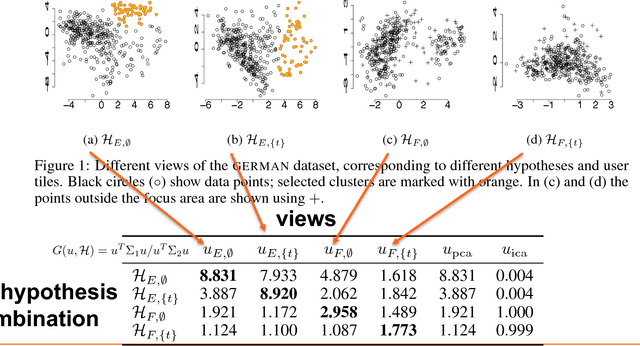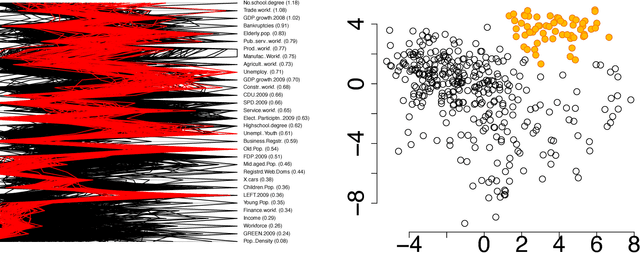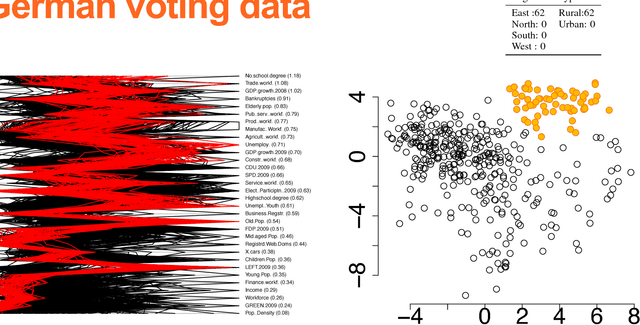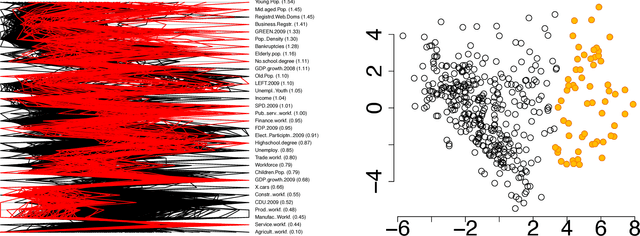Human-Guided Data Exploration
Paper and Code
Apr 09, 2018



The outcome of the explorative data analysis (EDA) phase is vital for successful data analysis. EDA is more effective when the user interacts with the system used to carry out the exploration. In the recently proposed paradigm of iterative data mining the user controls the exploration by inputting knowledge in the form of patterns observed during the process. The system then shows the user views of the data that are maximally informative given the user's current knowledge. Although this scheme is good at showing surprising views of the data to the user, there is a clear shortcoming: the user cannot steer the process. In many real cases we want to focus on investigating specific questions concerning the data. This paper presents the Human Guided Data Exploration framework, generalising previous research. This framework allows the user to incorporate existing knowledge into the exploration process, focus on exploring a subset of the data, and compare different complex hypotheses concerning relations in the data. The framework utilises a computationally efficient constrained randomisation scheme. To showcase the framework, we developed a free open-source tool, using which the empirical evaluation on real-world datasets was carried out. Our evaluation shows that the ability to focus on particular subsets and being able to compare hypotheses are important additions to the interactive iterative data mining process.
 Add to Chrome
Add to Chrome Add to Firefox
Add to Firefox Add to Edge
Add to Edge